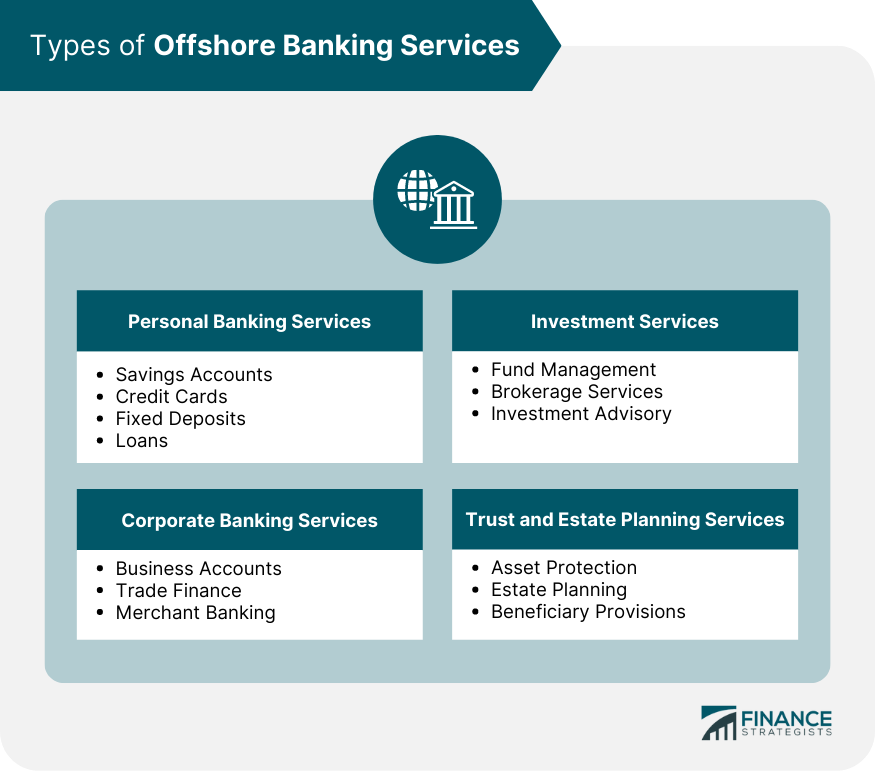How Offshore Business Formations Work: A Detailed Introduction for Business Owners
Offshore firm formations can give substantial benefits for entrepreneurs looking for tax optimization and possession security. The process includes multiple important steps, beginning with cautious territory option and comprehensive documents preparation. Engaging professional services is important for conformity. However, numerous ignore the continuous responsibilities that adhere to initial registration. Comprehending these complexities can make a considerable distinction in leveraging overseas chances successfully. The next steps are important for long-lasting success.
Comprehending Offshore Firms: What They Are and Why They Issue
Although the idea of offshore companies might appear complex, comprehending their fundamental nature and relevance is important for both businesses and individuals seeking to maximize their economic strategies. Offshore business are entities signed up outside the individual's country of home, typically in territories that use positive governing atmospheres. These services can offer various advantages, such as tax obligation optimization, asset security, and enhanced privacy.
For entrepreneurs, developing an overseas business can assist in worldwide trade, decrease operational costs, and broaden market reach. Furthermore, overseas business typically enable streamlined compliance with global policies. Individuals may likewise use overseas frameworks to secure individual properties from economic or political instability in their home countries. Eventually, the appeal of overseas firms hinges on their capability to boost monetary versatility and give strategic advantages in a significantly interconnected international economic climate - Offshore Company Formations. Understanding their functional structure and advantages is important for making notified decisions
Choosing the Right Territory for Your Offshore Firm
Choosing the ideal jurisdiction for an offshore company is vital for maximizing tax obligation advantages and ensuring compliance with regional guidelines. Various jurisdictions use differing tax rewards and regulative settings that can greatly affect company operations. A cautious evaluation of these elements is important for notified decision-making.
Tax Benefits Overview
When considering the establishment of an overseas firm, comprehending the tax obligation advantages connected with different territories is crucial. Various areas use special advantages, such as low or zero corporate tax obligation prices, which can greatly boost productivity. Some territories offer tax incentives for specific kinds of organizations, drawing in entrepreneurs seeking reduced tax obligation obligations. Additionally, particular nations impose desirable tax obligation treaties that minimize double taxation on worldwide income, ensuring that services maintain even more revenues. The selection of territory likewise influences value-added tax (VAT) and various other regional tax obligations. Entrepreneurs need to examine these elements meticulously to choose an area that lines up with their business goals, maximizing tax efficiency while continuing to be compliant with worldwide laws.
Regulatory Atmosphere Considerations
Choosing the best territory for an offshore firm requires a thorough understanding of the regulative setting, as various countries impose differing degrees of conformity and administration. Business owners should examine factors such as legal structures, tax policies, and reporting commitments. Jurisdictions like the British Virgin Islands and Cayman Islands are frequently favored for their business-friendly legislations and minimal coverage requirements. Conversely, some nations may impose strict policies that can make complex operations and increase expenses. In addition, the political security and reputation of a jurisdiction can influence the long-term practicality of the offshore business. Consequently, careful consideration of these regulatory elements is necessary to assure that the picked territory aligns with the company's operational needs and critical goals.
Preparing the Essential Documents
Preparing the needed documents is an important action in the overseas company formation procedure. Entrepreneurs need to collect various lawful and identification files to facilitate their firm's facility in an international jurisdiction. Generally, this includes a comprehensive business strategy laying out the firm's goals and operational approaches. Furthermore, personal recognition papers, such as passports or driver's licenses, are called for from the business's shareholders and supervisors.
In most cases, proof of address, like utility costs or bank statements, is essential to confirm the identifications of the entailed celebrations. Moreover, certain forms dictated by the territory, consisting of application for registration, have to be completed properly. Some jurisdictions might additionally call for a statement of the nature of business tasks and compliance with local guidelines. Thoroughly preparing these papers guarantees a smoother registration procedure and assists alleviate potential hold-ups or problems, inevitably establishing a strong foundation for the overseas entity.
Engaging Professional Solutions for Offshore Formation
Engaging expert solutions in offshore formation can significantly improve the efficiency and performance of the procedure. Business owners commonly face intricacies that can be overwhelming, making skilled advice invaluable. Professional firms concentrating on overseas formations give a wide range of understanding pertaining to territory choice, firm framework, and neighborhood market problems.
These experts can help in preparing crucial documentation, making sure precision and conformity with certain needs. They also help streamline communication with local authorities, minimizing the probability of misconceptions or delays. Additionally, expert services can provide insights right into strategic advantages, such as tax obligation benefits and asset protection, customized to the business owner's specific demands.
Navigating Regulatory Conformity and Legal Requirements
Comprehending the regulatory landscape is vital for entrepreneurs starting on offshore company developments. Conformity with neighborhood laws and global regulations is essential to prevent lawful pitfalls. Each jurisdiction has particular requirements regarding company registration, reporting, and taxation, which have to be thoroughly investigated.
Business owners should familiarize themselves with the laws regulating corporate structure, ownership, and operational methods in the chosen offshore location. Furthermore, anti-money laundering (AML) and know your client (KYC) guidelines frequently apply, needing correct documentation and confirmation procedures.
Engaging with attorneys who focus on overseas services can give invaluable support on maneuvering through these intricacies. Making sure compliance not just safeguards the firm from possible lawful concerns but additionally improves reliability with companions, financiers, and regulators. By adhering to the proposed lawful structures, entrepreneurs can successfully leverage the benefits of offshore business formations while decreasing risks associated with non-compliance.
Establishing Banking and Financial Accounts

When a suitable financial institution is identified, entrepreneurs commonly require to prepare and send various files, including evidence of identification, service enrollment documents, and a description of the desired company tasks. (Offshore Company Formations)
Some financial institutions may likewise need a minimal down payment to open up an account. Entrepreneurs must be prepared to address questions relating to the resource of funds and business operations. By completely recognizing the financial landscape and complying with the bank's requirements, entrepreneurs can safeguard their overseas firm has smooth accessibility to crucial monetary solutions for efficient procedure.
Keeping Your Offshore Company: Continuous Obligations and Ideal Practices
Keeping an overseas firm Source includes numerous recurring duties that are crucial for compliance and functional stability. Secret aspects include sticking to annual compliance requirements, keeping exact financial records, and comprehending tax responsibilities. These aspects are essential for ensuring the company's long life and lawful standing in its territory.
Annual Compliance Needs
While developing an overseas business offers countless benefits, it additionally involves ongoing my company responsibilities that can not be overlooked. Yearly conformity requirements differ by jurisdiction but usually include submitting annual returns and financial declarations to regional authorities. Business should additionally pay annual fees, which can include enrollment renewals and tax obligations, relying on the place. In addition, several territories require preserving a registered workplace and a local rep. Failing to adhere to these policies can cause charges, including penalties or perhaps dissolution of the business. Entrepreneurs must additionally understand any kind of changes in neighborhood laws that might affect their conformity responsibilities. Remaining informed and organized is necessary for maintaining the advantages of an overseas business while fulfilling lawful responsibilities successfully.
Maintaining Financial Records
Conformity with annual needs is only component of the ongoing obligations linked with offshore business monitoring. Keeping accurate monetary documents is vital for ensuring transparency and liability. Entrepreneurs should systematically document all deals, consisting of revenue, costs, and assets. This practice not only aids in internal decision-making however likewise prepares the business for potential audits from governing authorities.
Consistently updating financial statements, such as revenue and loss accounts and equilibrium sheets, is essential for tracking the firm's financial health. Utilizing bookkeeping software application can simplify this procedure, making it less complicated to preserve and generate reports conformity. Furthermore, entrepreneurs should take into consideration seeking professional accounting solutions to guarantee adherence to neighborhood laws and ideal techniques, thus safeguarding the integrity and reputation of their offshore operations.

Tax Obligations Summary
Guiding with the complexities of tax obligation commitments is crucial for the effective management of an overseas firm. Business owners should recognize the tax obligation policies of both their home country and the jurisdiction where the offshore entity is developed. Compliance with neighborhood taxes regulations is important, as failing to adhere can result in penalties or lawful problems. Frequently filing needed income tax return, also when no tax obligation may be owed, is frequently called for. Furthermore, maintaining current and accurate economic records is vital for showing compliance. Looking for recommendations from tax experts knowledgeable about global tax legislation can aid navigate these obligations successfully. By implementing best practices, business owners can assure that their offshore procedures continue to be lawfully compliant and economically sensible.

Frequently Asked Inquiries
How much time Does the Offshore Business Formation Refine Normally Take?
The overseas company development process generally varies from a couple of days to several weeks. Variables influencing the timeline include territory, documentation requirements, and responsiveness of economic and legal institutions entailed in the configuration.
What Are the Costs Related To Maintaining an Offshore Firm?
The expenses related to maintaining an overseas company can differ commonly. They generally consist of annual registration fees, conformity prices, accounting services, and possible lawful charges, relying on the territory and particular organization tasks included.
Can I Open a Personal Checking Account for My Offshore Firm?
Opening an individual checking account for an offshore business is normally not allowed. Offshore accounts need to be company accounts, showing the firm's activities, thus abiding by laws and making sure correct financial administration and lawful accountability.
Are There Constraints on Foreign Possession of Offshore Firms?

What Takes place if I Fail to Abide With Offshore Laws?
Failure to abide with offshore regulations can result in extreme penalties, consisting of large penalties, loss of company licenses, and possible criminal fees. Additionally, non-compliance may cause reputational damage and problems in future business procedures.
Offshore companies are entities registered outside the person's country of home, typically in territories that supply favorable regulative settings. Selecting the suitable territory for an overseas firm is critical for making the most of tax obligation advantages and guaranteeing conformity with regional laws. When considering the establishment of an overseas firm, understanding the tax benefits connected with different territories is essential. Choosing the best jurisdiction for an overseas business calls for a complete understanding of the governing atmosphere, as various nations enforce varying degrees of compliance and governance. Additionally, the political stability and credibility of a territory can impact the lasting viability of the offshore company.